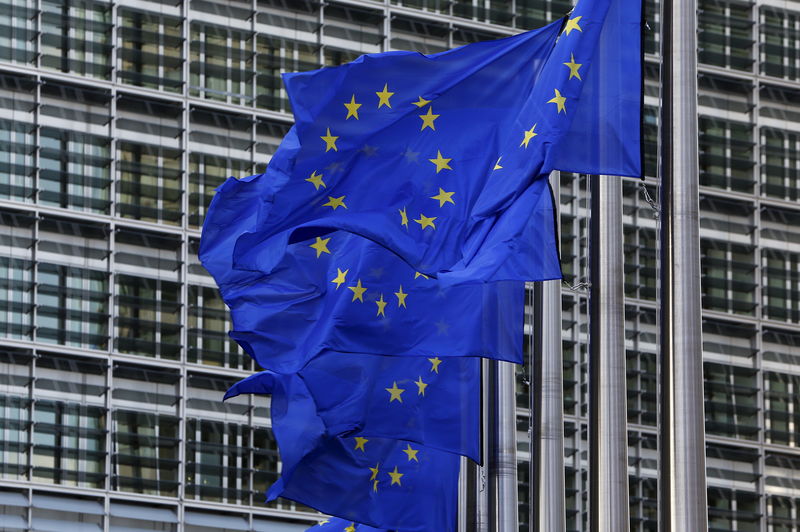
Investing.com — The imposition of a 10% US tariff on all imports from the Eurozone could significantly impact growth, according to UBS economists.
The potential tariffs are modeled as part of a broader analysis on global trade tensions, highlighting how their economic repercussions depend heavily on Europe’s response and broader global tariff actions.
According to UBS, the direct GDP impact of a standalone 10% US tariff on the Eurozone would range from a decline of 0.28 percentage points (pp) with full retaliation to 0.43 pp if the Eurozone refrains from retaliating. The primary drag on GDP arises from declining exports, which outweigh the impact on imports.
“The nominal value of a 10% tariff on the Eurozone is worth about EUR30bn, or 0.2% GDP,” economists said in a note.
The overall economic impact on GDP, if tariffs were applied exclusively to Europe, is estimated to range from a decline of 28 basis points with full retaliation to 43 basis points without retaliation, driven entirely by a larger drop in exports compared to imports.
Inflationary pressures from such tariffs are contingent on Europe’s actions. UBS notes, that retaliatory tariffs could raise inflation by up to 13 basis points (bp) in consumer prices and 26 bp in the GDP deflator.
Without retaliation, inflation effects remain subdued due to lower import price adjustments and limited currency depreciation.
“We estimate the inflation impact between -2bp and +26bp for the GDP deflator and between 1 to 13bp for CPI,” economists wrote.
“If Europe does not retaliate and thus its import prices do not go up, the inflation impact is largely a function of the currency depreciation and growth weakness; by contrast, retaliation lifts import prices and inflation,” they explained.
When combined with broader US tariff escalation, such as a 60% tariff on Chinese imports, the scenario changes. UBS points out that the depreciation of the Chinese yuan (RMB) relative to both the US dollar and the euro could offset the inflationary impacts in Europe.
“If RMB depreciates more than other currencies due to higher US tariffs, imports from China could cheapen, neutralizing the inflationary impact of Europe’s own tariffs,” the note states.
On domestic demand, UBS estimates the fallout to be relatively modest, with impacts ranging between -0.01 to -0.13 pp depending on retaliation.






